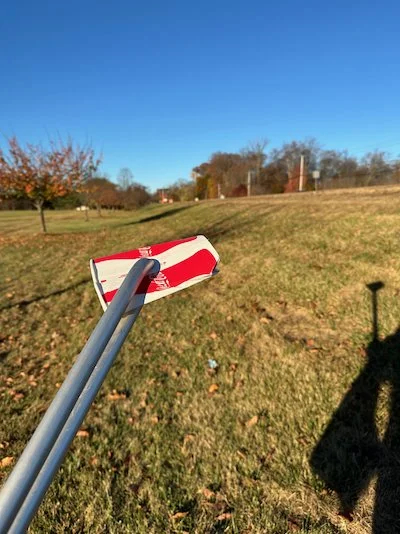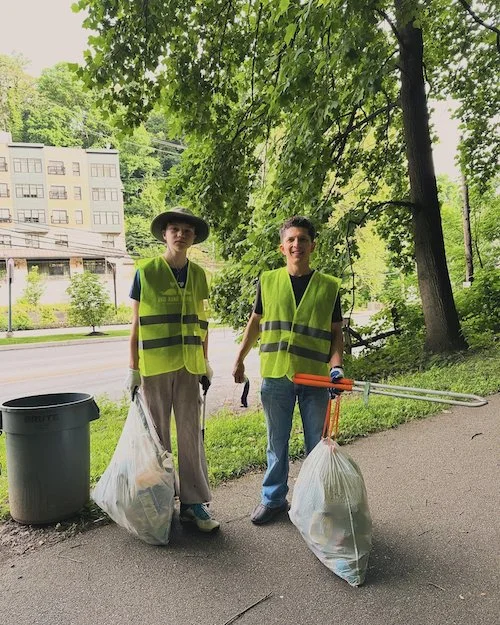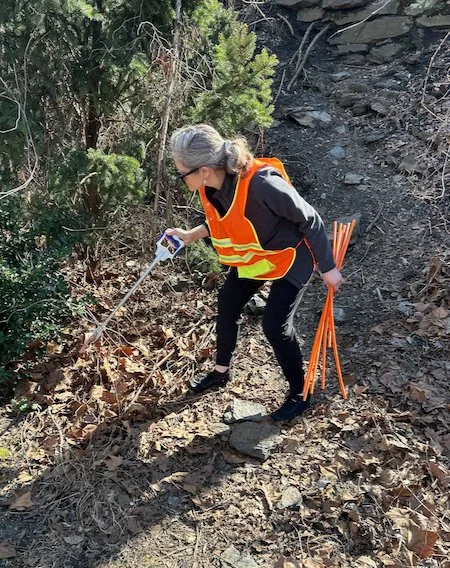The Mental and Physical Health Benefits of Volunteering to Pick Up Litter
I am thankful to my friend Dr. Reed Omary, MD, MS who has graciously reviewed this article before its publication. Dr. Omary is the Carol D. and Henry P. Professor in the Department of Radiology at Vanderbilt University Medical Center (VUMC) in Nashville, Tennessee and author of the Green Leap blog, and has more than 25 years of experience as a practicing interventional radiologist, NIH-funded scientist, and educator.
Introduction
How would you like to improve your health, AND serve your community at the same time? While I will be the first to admit I have no medical background, it’s been apparent to me that ever since I started actively volunteering several years ago, my physical health has been helped by the extra exercise. I have also noticed several positive developments on the mental and psychological side as well. So I decided to research the health benefits of carrying out environmental volunteering: surely I am not the only one thinking this!
And indeed, it turns out that volunteering to clean up litter, whether in your neighborhood or when you travel, offers numerous health benefits, as well as a rewarding sense of civic responsibility and personal well-being.
Engaging in this activity doesn’t just benefit the environment and local areas; it has the potential to positively impact volunteers themselves, mentally and physically.
Physical Health Improvements?
Yes! Don’t believe me? Just ask members of this small group from New England, called Old Ladies Against Underwater Garbage: Aged 64-85, they swim in the freshwater ponds of Cape Cod collecting trash. Or take a look at this 2015 scientific study conducted among middle-aged adults, where results showed that volunteers were less likely to have high central adiposity, lipid dysregulation, elevated blood glucose levels compared with non-volunteers. For older adults, results showed volunteers were less likely to be hypertensive and more likely to have lipid dysregulation than their non-volunteer counterparts.
Picking up litter requires a fair amount of movement, whether it involves bending, lifting, or walking, which promotes cardiovascular health. For people who may not regularly exercise, this activity provides a gentle yet effective workout that helps burn calories, strengthens muscles, and increases endurance. Volunteers may also walk several miles during cleanups, particularly if they cover large areas, further benefiting their cardiovascular and respiratory systems.
Another study found that compared with non-volunteers, volunteering more than 200 hr / year was associated with a lower risk for clinically high diastolic blood pressure. From boosting mood and reducing stress to enhancing physical fitness and fostering a sense of community connection, picking up litter is a powerful way to improve one’s own health while making a positive difference.
Moreover, the physical activity associated with litter cleanups promotes joint mobility and flexibility. Regularly engaging in these motions can improve physical fitness over time, making everyday tasks easier. In addition to the direct physical benefits, spending time outdoors increases vitamin D levels from sunlight exposure, which supports bone health, immune function, and mood regulation. The fresh air and sunlight can help people feel more energized and motivated, contributing to an overall improvement in physical and mental health.
Did You Just Say Mental Health?
Yes! Volunteering has been shown to increase happiness and decreases stress, anxiety, and depression.
Participating in a litter cleanup can instill a sense of purpose, which is essential for mental well-being. The act of setting out to achieve a goal that improves the environment gives volunteers a sense of accomplishment, often leading to a boost in self-esteem.
Additionally, cleaning up litter offers the satisfaction of seeing immediate results—watching a once-polluted area become visibly cleaner provides an instant feeling of achievement. According to Mayo Clinic Health System psychotherapist Angela Thoreson, volunteering offers significant health benefits, especially for older adults: engaging in outdoor activities like litter cleanups also exposes volunteers to natural settings, which are known to lower stress levels. Nature has a calming effect on the brain, and being in green spaces can reduce the production of stress hormones like cortisol.
Moreover, being part of a cleanup crew can strengthen social bonds, another key factor in reducing stress and enhancing mental resilience. Interacting with like-minded individuals fosters a sense of community and belonging, combating feelings of isolation and loneliness, which are common contributors to poor mental health. The act of giving back and making a visible impact on the community cultivates a strong sense of purpose and resilience, which are essential for long-term mental health.
Furthermore, cleaner, litter-free neighborhoods have a positive impact on everyone. Studies have shown that living in clean, well-maintained areas reduces overall stress, while littered and neglected spaces can cause mental fatigue and a feeling of disconnection. By helping to clean up the community, volunteers reduce this environmental stress, making it a more enjoyable place to live for everyone.
Picking It All Up
There you have it – a strong case for volunteering to clean up litter. It is a simple but powerful way to boost your mental and physical health!
There are few better ways to further physical fitness, reduces stress, have some fun, and creates a sense of accomplishment that benefits you as well as other people. Indeed, you may meet others who also care about their own health and that of their environment, and make connections in your community.
By dedicating time to keep our surroundings clean, we not only improve our own well-being but also create a positive ripple effect with wide-ranging benefits to everyone around us.






